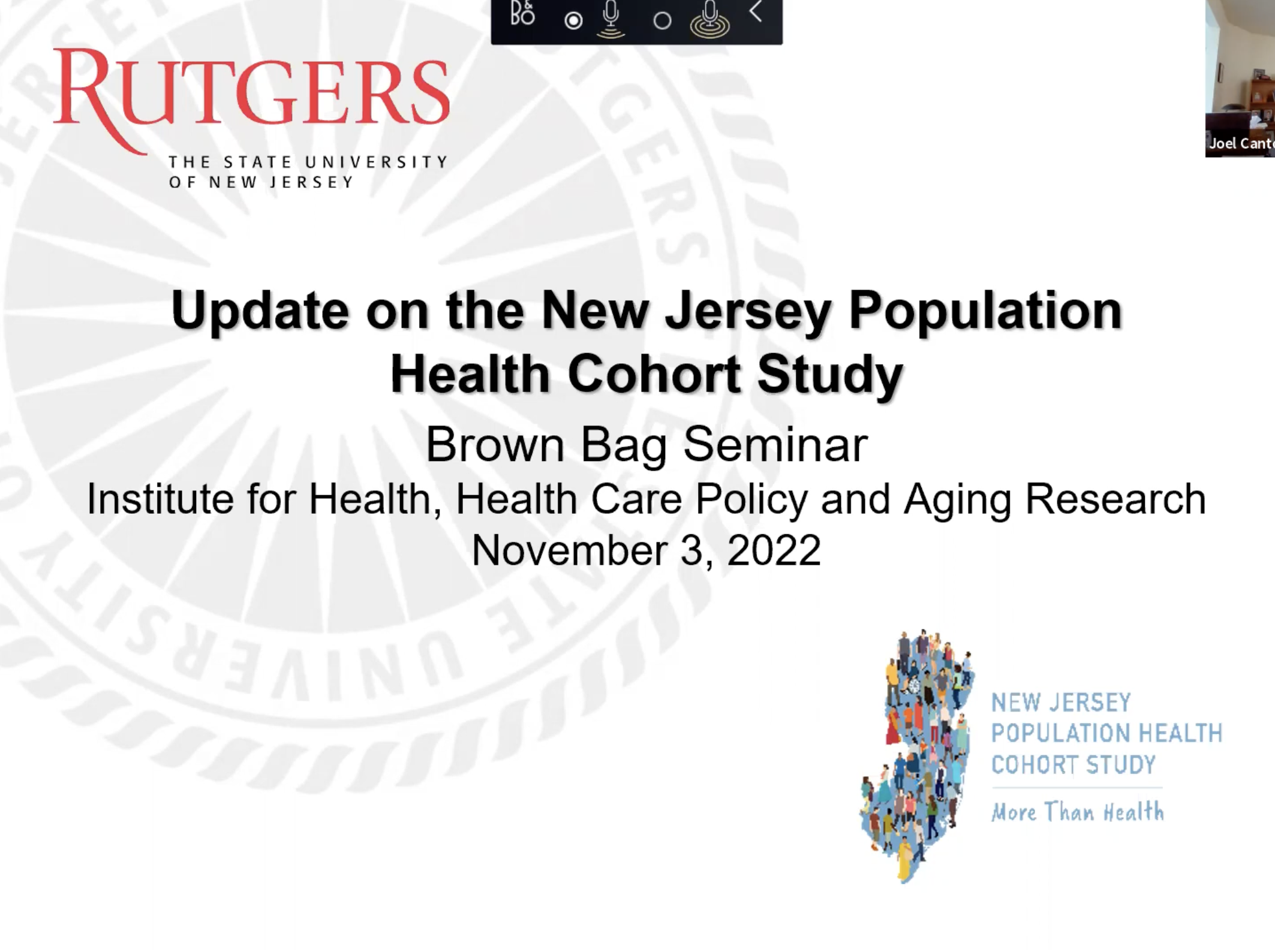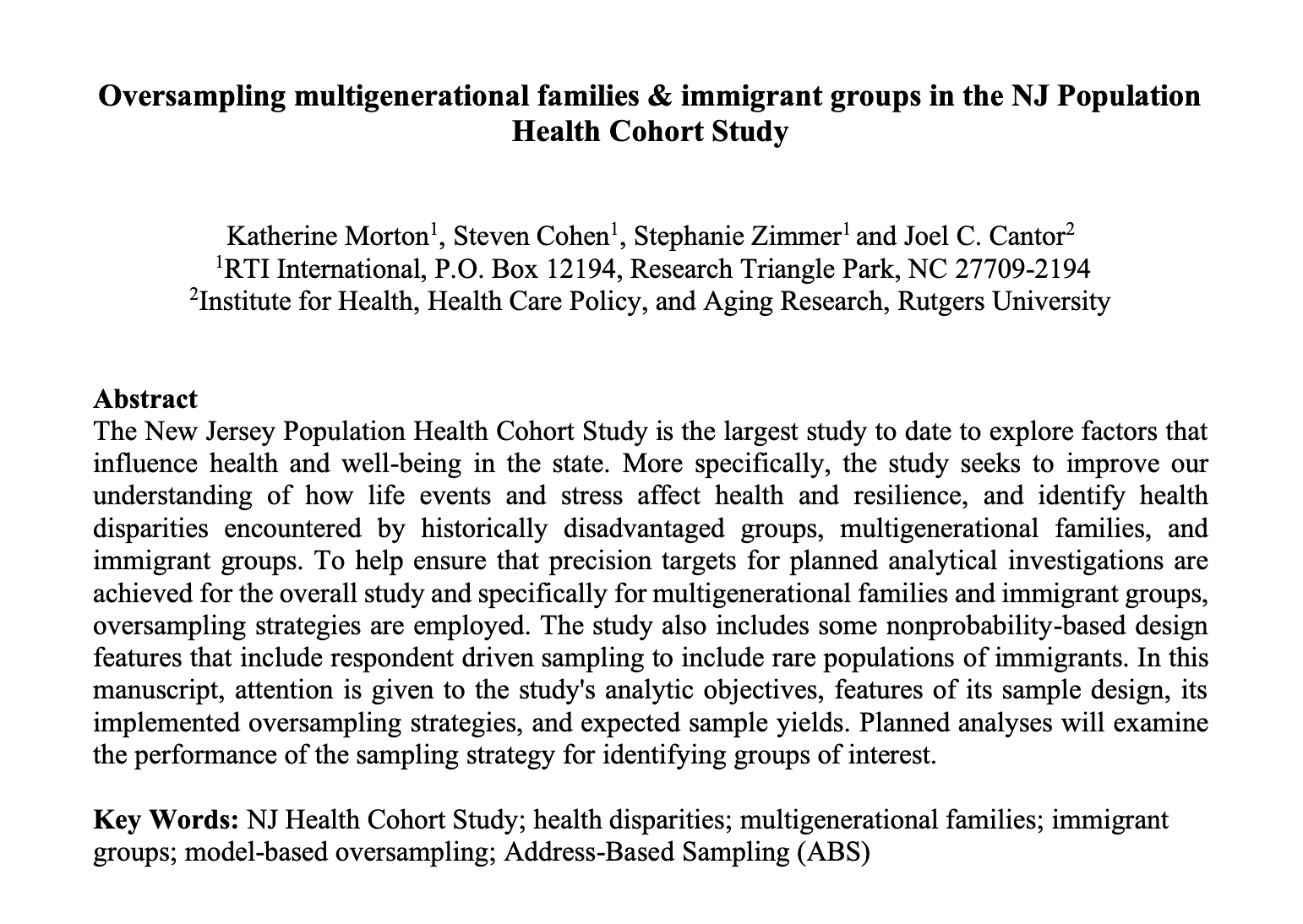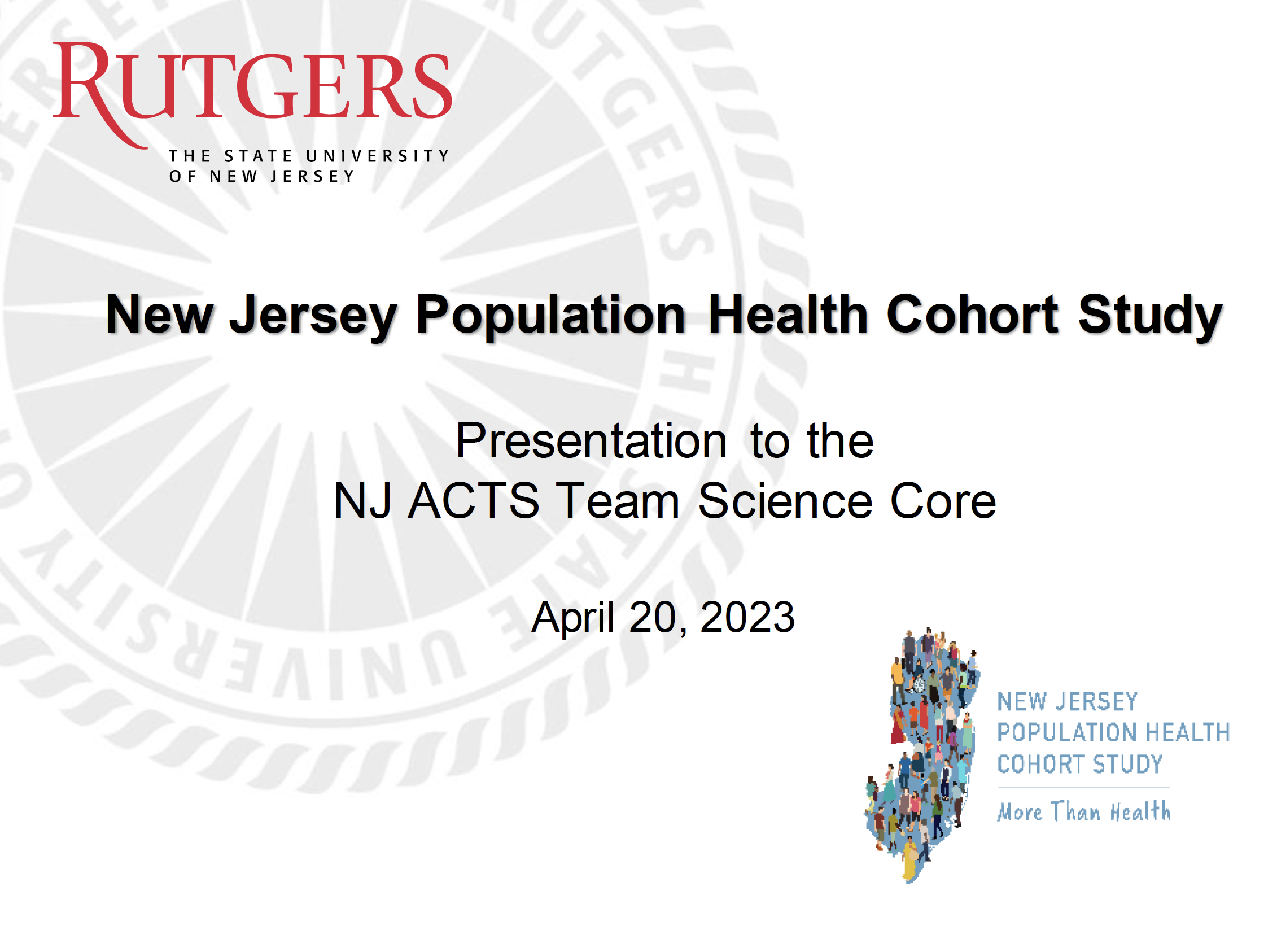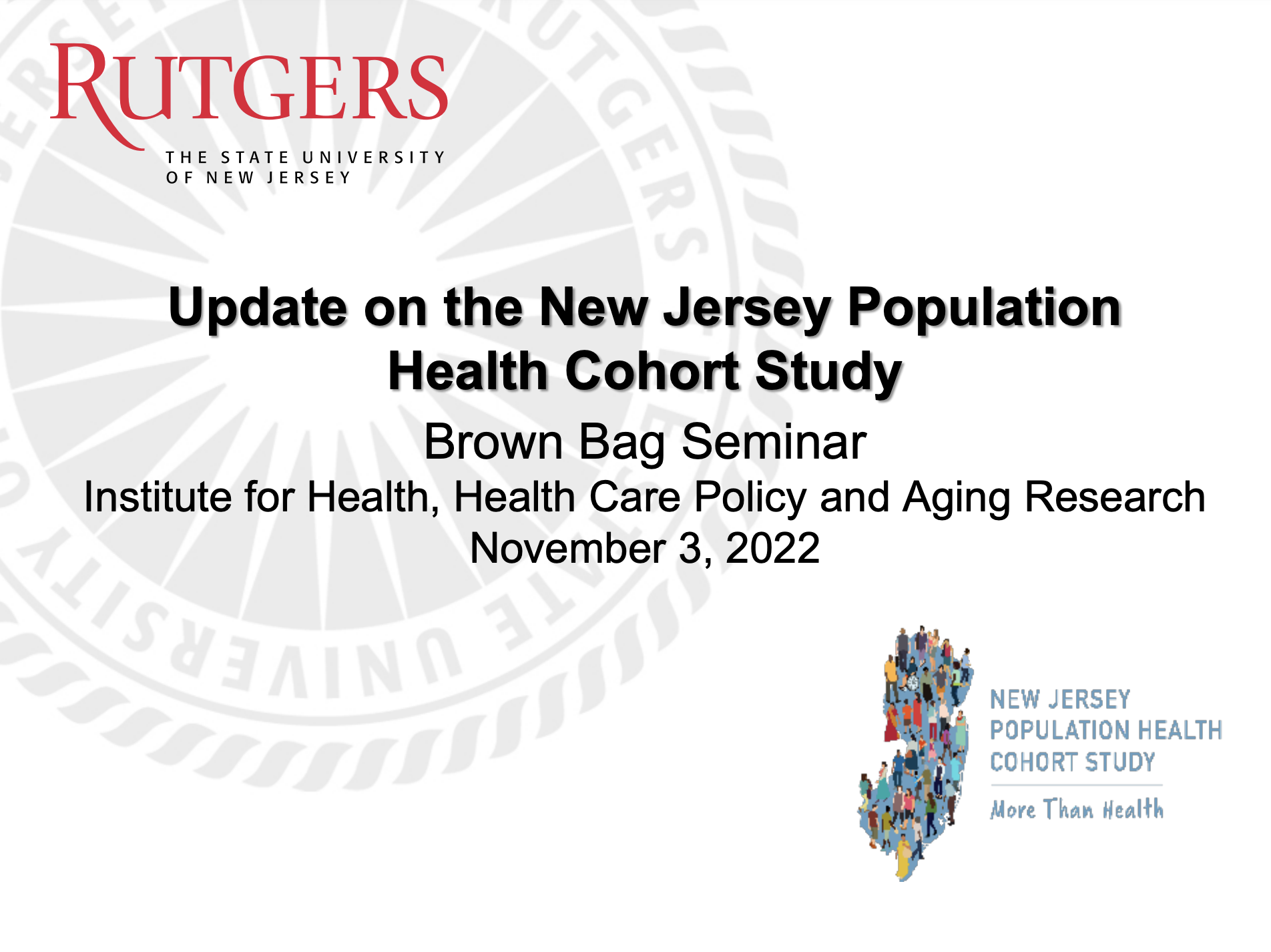
Presentations - Apr 2023
Presentations - Nov 2022

IFH Brown Bag Seminar: Update on New Jersey Population Health Cohort Study
Investigators on the New Jersey Population Health Cohort Study, funded by the Robert Wood Johnson Foundation and RBHS, present an overview of the study design and update on the progress of recruitment...
Publications

Read RTI’s Study Sampling Paper Read RTI’s Study Sampling Paper
The New Jersey Population Health Cohort Study is the largest study to date to explore factors that influence health and well-being in the state. More specifically, the study seeks to improve our understanding of how life events and stress affect health and resilience, and identify health disparities encountered by historically disadvantaged groups, multigenerational families, and immigrant groups. To help ensure that precision targets for planned analytical investigations are achieved for the overall study and specifically for multigenerational families and immigrant groups, oversampling strategies are employed. The study also includes some nonprobability-based design features that include respondent driven sampling to include rare populations of immigrants. In this manuscript, attention is given to the study's analytic objectives, features of its sample design, its implemented oversampling strategies, and expected sample yields. Planned analyses will examine the performance of the sampling strategy for identifying groups of interest.
_Study.1743464976.png)
Health implications of enduring and emerging stressors: Design of the prospective New Jersey Population Health Cohort (NJHealth) Study
Introduction. Some stressors, like unemployment, are common and rigorously studied, while others, such as those related to climate change or social media are just emerging and in need of systematic research. The New Jersey Population Health Cohort (NJHealth) Study aims to characterize enduring and emerging stressors and delineate the pathways through which they influence health, especially among groups likely to experience chronic exposure to stressors including immigrants, people of color, multi-generational families, and low-income families. Methods and analysis. A prospective cohort, the NJHealth Study is recruiting 8,000 NJ residents aged 14 and older using probabilistic and purposive methods to include members of multi-generational families, marginalized racial/ethnic and low-income populations, and recent immigrant groups. Building on ecosocial, life course, and stress process models, the NJHealth Study employs multi-modal data collection to comprehensively measure stress-related factors at individual and societal levels. Interviews include self-assessments of individual and societal stressors, potential stress buffers and amplifiers, and health and well-being outcomes, including cognitive function, activity limitations, and self-reported health. In addition, salivary DNA, fasting plasma, health assessments, and actigraphy data are collected from selected participants; and existing electronic health records, health insurance claims, social service and employment data, vital records are linked. NJ's socioeconomic and demographic diversity make it an exceptional setting for the study. Strong community and stakeholder engagement supports effective translation of research findings into practical policy and programmatic applications.


